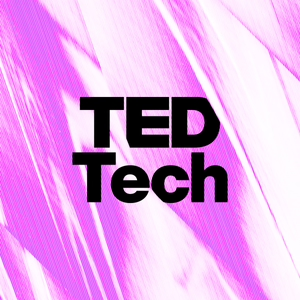
The TED AI Show: Could AI really achieve consciousness? w/ neuroscientist Anil Seth
12/10/24 • 56 min
1 Listener
Human brains are often described as computers — machines that are “wired” to make decisions and respond to external stimuli in a way that’s not so different from the artificial intelligence that we increasingly use each day. But the difference between our brains and the computers that drive AI is consciousness – our inner world, defined by experience and awareness. Anil Seth is a professor of cognitive and computational neuroscience at the University of Oxford. He studies human consciousness and he’s concerned about the way we’ve come to think about AI as conscious minds rather than useful tools. Anil and Bilawal sit down to discuss the differences between intelligence and consciousness, the possibility of AI becoming self-aware, and the dangers of assigning human-like traits to our AI assistants. For transcripts for The TED AI Show, visit go.ted.com/TTAIS-transcripts
Want to help shape TED’s shows going forward? Fill out our survey!
Become a TED Member today at ted.com/join
Hosted on Acast. See acast.com/privacy for more information.
Human brains are often described as computers — machines that are “wired” to make decisions and respond to external stimuli in a way that’s not so different from the artificial intelligence that we increasingly use each day. But the difference between our brains and the computers that drive AI is consciousness – our inner world, defined by experience and awareness. Anil Seth is a professor of cognitive and computational neuroscience at the University of Oxford. He studies human consciousness and he’s concerned about the way we’ve come to think about AI as conscious minds rather than useful tools. Anil and Bilawal sit down to discuss the differences between intelligence and consciousness, the possibility of AI becoming self-aware, and the dangers of assigning human-like traits to our AI assistants. For transcripts for The TED AI Show, visit go.ted.com/TTAIS-transcripts
Want to help shape TED’s shows going forward? Fill out our survey!
Become a TED Member today at ted.com/join
Hosted on Acast. See acast.com/privacy for more information.
Previous Episode

5 ethical principles for digitizing humanitarian aid | Aarathi Krishnan
Over the last decade, humanitarian organizations have digitized many of their systems, from registering refugees with biometric IDs to transporting cargo via drones. This has helped deliver aid around the world, but it's also brought new risks to the people it's meant to protect. This week we're revisiting a talk by tech and human rights ethicist Aarathi Krishnan who points to the dangers of digitization — like sensitive data getting into the hands of the wrong people — and lays out five ethical principles to help inform humanitarian tech innovation. After the talk, our host Sherrell shares a practical way to assess the costs and benefits of digitizing aid using Krishnan's principles.
Want to help shape TED’s shows going forward? Fill out our survey!
Become a TED Member today at ted.com/join
Hosted on Acast. See acast.com/privacy for more information.
Next Episode

Could we replace data centers with … plant DNA? | Cliff Kapono and Keolu Fox
Is it possible to meet the world's seemingly infinite demand for data storage while also caring for the natural environment? Biomedical researcher Keolu Fox and professional surfer and scientist Cliff Kapono believe that Indigenous knowledge combined with the science of genetics may offer such a solution: using the DNA of plant cells (like those found in sugar cane) as mini data warehouses. Learn more about the incredible potential of this technology — and how it could help foster ecosystem resilience in a high-tech world. After the talk, Sherrell reflects on the economic and environmental benefits this technology could reap.
Want to help shape TED’s shows going forward? Fill out our survey!
Become a TED Member today at ted.com/join
Hosted on Acast. See acast.com/privacy for more information.
If you like this episode you’ll love
Episode Comments
Generate a badge
Get a badge for your website that links back to this episode
<a href="https://goodpods.com/podcasts/ted-tech-22650/the-ted-ai-show-could-ai-really-achieve-consciousness-w-neuroscientist-79769912"> <img src="https://storage.googleapis.com/goodpods-images-bucket/badges/generic-badge-1.svg" alt="listen to the ted ai show: could ai really achieve consciousness? w/ neuroscientist anil seth on goodpods" style="width: 225px" /> </a>
Copy



